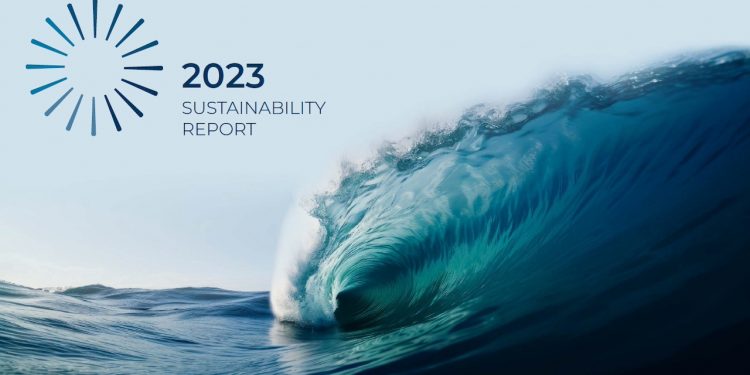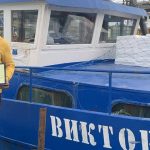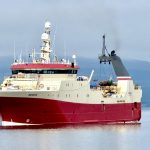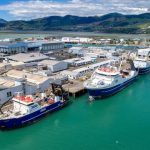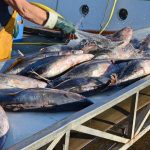Spanish technology group Satlink has released the first edition of its Sustainability Report, which highlights the milestones, goals, and most relevant projects carried out by the company in environmental, social, and corporate governance (ESG) matters in 2023.
Improving ocean knowledge for more effective resource management is at the core of Satlink’s activities, and the company established its Science and Sustainability department in 2017, with the aim of generating greater knowledge about the oceans to address challenges such as illegal fishing, marine pollution, or climate change.
‘We firmly believe that technology is the path to tackling these challenges, and it must be approached as a joint effort of all stakeholders. Therefore, we work hand in hand with scientific institutions, governments, regulators, NGOs, and the industry as a whole,’ said Kathryn Gavira, Director of Science and Sustainability at Satlink.
As highlighted in the report, the company has led numerous initiatives for ocean sustainability and knowledge, such as tuna tagging campaigns for biological studies, circular economy programs for buoys reuse, or scientific studies based on echosounder data collected by its devices. Additionally, Satlink has participated in the removal of over 116,000kg of abandoned, lost, or discarded fishing nets and gear at sea.
‘For more than three decades, we have been providing technological solutions to contribute to a better management of the ocean and its resources, as well as promoting responsible and transparent fishing practices. This Sustainability Report, which we are excited to publish for the first time, is a true reflection on how our daily work drives more sustainable resource management, combats illegal fishing, promotes the protection of vulnerable species, and contributes to scientific knowledge of the oceans and their resources,’ commented Satlink president Faustino Velasco.
Among the initiatives carried out by the company in 2023, Project ReCon stands out. This programme was launched in December 2022 to give a second life to smart buoys and prevent them from becoming technological waste. To achieve this, Satlink has created one of the largest collaboration networks worldwide between the tuna industry – with over 100 vessels and 22 companies by the end of 2023 – and local organisations specialised in nature conservation. In its first year of operation, 77% of the recovered and tested buoys have proven to be reusable for scientific and environmental purposes, such as marking and monitoring marine litter, scientific studies, or natural disaster prevention, allowing the protection of biologically valuable environments such as the Great Barrier Reef.
Satlink sets ambitious improvement goals each year in terms of ESG. The company has achieved different milestones this year such as reducing the plastic used in the manufacture of its smart buoys by up to 28%, and ensuring that 27% of the energy used in its production centre, located in Vitoria, comes from solar sources. In terms of social sustainability, Satlink has promoted an inclusive, fair, and diverse corporate culture. With a 5% increase in staff over the past year, 30% of the company’s managing positions are now held by women, a and 66% of positions on the employee committee are held by women.

